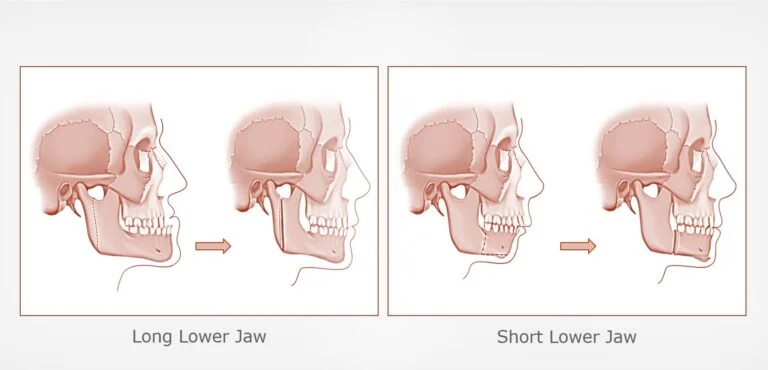Understanding the Role of a Veterinary Cardiologist: Caring for Your Pet’s Heart Health
Just like humans, pets can suffer from heart-related issues that require specialized care. Veterinary cardiologists are experts who diagnose, treat, and manage heart conditions in animals, improving their quality of life and sometimes extending their lifespan. This article delves into what a vet cardiologist does, when you might need one, common heart conditions in pets, and the types of treatments available.
What is a Veterinary Cardiologist?
A veterinary cardiologist is a veterinarian who has undergone additional training to specialize in the diagnosis and treatment of heart and vascular conditions in animals. These professionals are equipped to handle complex heart problems that general veterinarians may not be able to manage, using specialized tools and techniques to provide the highest level of cardiac care.
When Should You Consult a Veterinary Cardiologist?
1. Signs and Symptoms of Heart Disease in Pets
Heart disease in pets often goes unnoticed until it becomes severe. If you notice any of the following symptoms in your pet, it may be time to consult a veterinary cardiologist:
- Persistent coughing or difficulty breathing
- Fatigue, especially after mild activity
- Rapid or irregular heartbeats
- Fainting or collapsing episodes
- Swelling in the abdomen or limbs (edema)
- Decreased appetite or weight loss
2. Referral from Your Primary Veterinarian
In many cases, your primary veterinarian may refer you to a veterinary cardiologist if they detect signs of heart disease during a routine exam or if initial treatments are not improving your pet’s symptoms. A referral often indicates that your pet’s condition requires more specialized attention.
Common Heart Conditions in Pets
Veterinary cardiologists treat a range of heart and vascular diseases in pets. Here are some of the most common conditions they manage:
1. Congestive Heart Failure (CHF)
Congestive heart failure occurs when the heart cannot pump blood effectively, leading to a buildup of fluid in the lungs or other body parts. CHF is common in older dogs and certain breeds, and early treatment can significantly improve outcomes.
2. Dilated Cardiomyopathy (DCM)
Dilated cardiomyopathy is a condition where the heart’s chambers enlarge and weaken, reducing the heart’s ability to pump blood effectively. DCM is common in larger dog breeds, such as Doberman Pinschers and Great Danes, and can lead to severe health complications if not managed properly.
3. Mitral Valve Disease (MVD)
Mitral valve disease is a condition where the valve between the heart’s left atrium and left ventricle does not close properly, leading to blood leakage. This condition is common in small-breed dogs and can lead to heart failure over time.
4. Arrhythmias
An arrhythmia is an irregular heartbeat, which can range from mild to severe. Some arrhythmias may not pose significant health risks, but others can disrupt blood flow and lead to fainting, collapse, or even sudden death.
5. Pulmonic and Aortic Stenosis
These are congenital conditions in which a heart valve is narrowed, making it harder for blood to flow through. Aortic stenosis and pulmonic stenosis are particularly common in breeds like Boxers, Golden Retrievers, and Bulldogs.
6. Heartworm Disease
Heartworm disease, transmitted by mosquitoes, is common in both dogs and cats. The parasite infects the heart and lungs, causing serious damage over time. Preventative medications are essential, and treatment for heartworm disease requires the expertise of a veterinary cardiologist.
Diagnostic Techniques Used by Veterinary Cardiologists
Veterinary cardiologists use advanced diagnostic tools to assess heart health and pinpoint the exact condition affecting your pet. Here are some common diagnostic techniques:
1. Echocardiography
An echocardiogram is an ultrasound of the heart that provides real-time images, allowing cardiologists to observe heart function, detect structural abnormalities, and assess blood flow.
2. Electrocardiogram (ECG)
An ECG records the heart’s electrical activity and helps identify irregular heart rhythms (arrhythmias) that may need to be managed or treated.
3. X-rays
X-rays are often used to assess the size and shape of the heart and detect fluid buildup in the lungs or abdomen, which can be indicative of heart failure.
4. Blood Pressure Measurement
Blood pressure measurements help monitor conditions like hypertension, which can contribute to heart disease and impact the effectiveness of treatment plans.
5. Blood Tests
Blood tests can help detect underlying conditions, such as thyroid disease, kidney disease, or electrolyte imbalances, that may contribute to or worsen heart issues.
Treatment Options for Heart Conditions in Pets
Once a diagnosis is made, the veterinary cardiologist will work with you to develop a treatment plan tailored to your pet’s needs. Treatment options may include:
1. Medications
Medications such as ACE inhibitors, diuretics, and beta-blockers are commonly prescribed to manage heart disease symptoms, reduce fluid buildup, and improve heart function.
2. Dietary Changes
A cardiologist may recommend a special diet low in sodium and rich in certain nutrients to support heart health. Weight management is also crucial in reducing the strain on your pet’s heart.
3. Surgery
In some cases, surgery may be necessary to correct structural defects, repair or replace heart valves, or remove heartworms. These procedures are typically performed in specialized veterinary hospitals.
4. Pacemaker Implantation
For pets with severe arrhythmias or heart block, a pacemaker may be implanted to help regulate heart rhythm and improve quality of life.
5. Lifestyle Modifications
Certain activities, like excessive running or jumping, may be discouraged to reduce strain on the heart. Your vet cardiologist will guide you on suitable exercises and activity levels for your pet.
Caring for a Pet with Heart Disease
Managing a pet with heart disease requires commitment and regular care. Here are some tips to help you care for your pet at home:
- Follow Medication Schedules: Administer medications exactly as prescribed to maintain effectiveness.
- Monitor Symptoms: Keep a close eye on symptoms and report any changes to your vet. Deterioration in breathing or energy levels can indicate complications.
- Provide a Comfortable Environment: Limit stress, ensure a peaceful environment, and adjust exercise routines as recommended by the cardiologist.
- Schedule Regular Checkups: Frequent follow-up visits allow your veterinary cardiologist to monitor progress and make adjustments to the treatment plan if needed.
FAQs about Veterinary Cardiologists
1. How much does a consultation with a veterinary cardiologist cost?
Costs vary, but an initial consultation can range from $200 to $500, with additional costs for tests and treatments. Many cardiologists offer payment plans or work with pet insurance.
2. Is heart disease curable in pets?
While many heart conditions are manageable, not all are curable. Proper management and regular checkups can help improve your pet’s quality of life.
3. How can I prevent heart disease in my pet?
Preventative measures include maintaining a healthy diet, keeping your pet active, regular veterinary checkups, and providing heartworm prevention.
Conclusion
A veterinary cardiologist plays a crucial role in diagnosing and treating heart conditions in pets, providing specialized care that goes beyond the scope of general veterinary practice. With the right care, treatment, and management, many pets with heart disease can continue to lead happy, fulfilling lives. If you suspect your pet may have heart issues, consulting a veterinary cardiologist can make a significant difference in your pet’s health and overall well-being.






